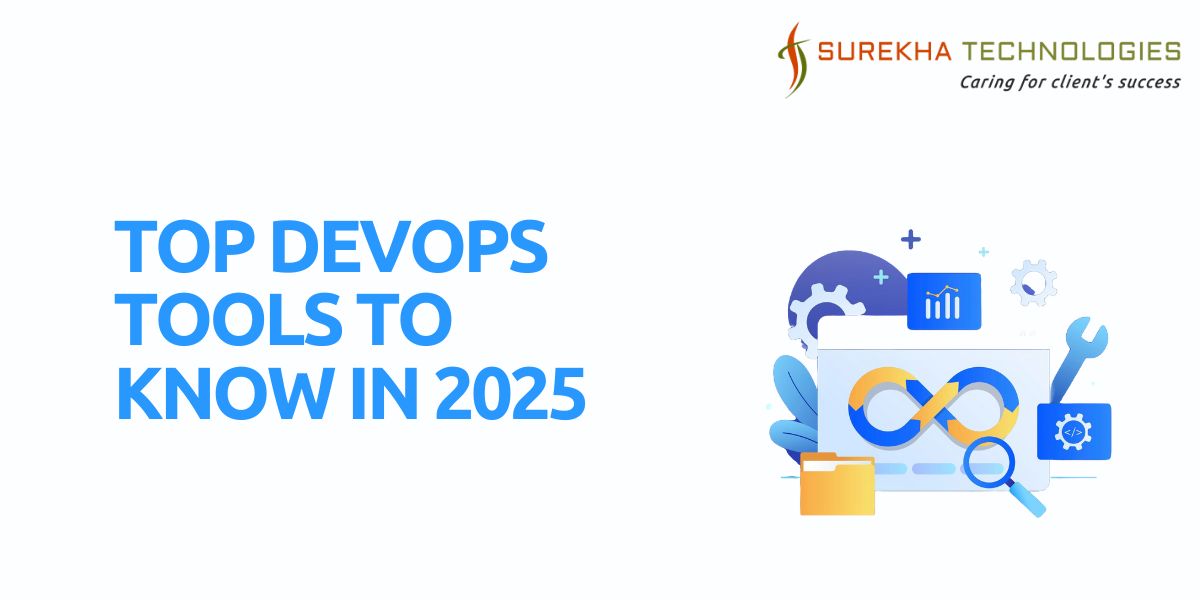
The DevOps landscape continues to evolve as organizations prioritize automation, collaboration, and efficiency in their software development and IT operations. With 2025 upon us, adopting the right tools is crucial for staying ahead in a competitive environment. Whether you’re working with a DevOps development company or exploring DevOps consulting services and solutions, understanding the top tools can drive seamless development and deployment pipelines. Here’s a rundown of the top DevOps tools to know in 2025:
1. Jenkins
Jenkins remains one of the most popular open-source automation tools for continuous integration and delivery (CI/CD). With its vast plugin ecosystem, Jenkins offers unmatched flexibility for automating every stage of the DevOps pipeline. It integrates seamlessly with other leading tools, ensuring smoother workflows for DevOps teams.
2. Docker
Containerization has become the backbone of modern application development, and Docker leads the pack. By enabling developers to package applications with all dependencies, Docker ensures consistency across environments, reducing the “it works on my machine” problem.
3. Kubernetes
Managing containers at scale is simplified with Kubernetes, the go-to container orchestration platform. Kubernetes automates deployment, scaling, and management of containerized applications, making it indispensable for organizations embracing microservices architectures.
4. GitLab CI/CD
GitLab’s integrated CI/CD capabilities make it a standout choice for DevOps professionals. Beyond just version control, GitLab offers a complete DevOps lifecycle toolchain, allowing teams to streamline development and operations in one platform.
5. Terraform
Infrastructure as Code (IaC) is essential for modern DevOps, and Terraform is the preferred tool for defining and provisioning infrastructure in a declarative manner. Its multi-cloud support allows teams to manage resources across platforms effortlessly.
6. Ansible
For configuration management and automation, Ansible is a must-know tool. Its simplicity and agentless architecture make it ideal for automating repetitive tasks, managing infrastructure, and deploying applications.
7. Prometheus
Monitoring and alerting are key components of any DevOps strategy. Prometheus excels in collecting and analyzing metrics from your applications and infrastructure, providing actionable insights to improve performance and reliability.
8. ELK Stack (Elasticsearch, Logstash, and Kibana)
The ELK Stack remains a top choice for log management and analysis. By centralizing and visualizing logs, it helps teams diagnose issues and optimize system performance effectively.
9. Azure DevOps
As a comprehensive suite of DevOps services, Azure DevOps provides tools for CI/CD, project management, and version control. Its seamless integration with other Microsoft services makes it a preferred choice for enterprises already in the Microsoft ecosystem.
10. CircleCI
CircleCI’s ability to automate the build, test, and deployment processes makes it a favorite for startups and large enterprises alike. Its focus on speed and scalability ensures faster delivery cycles.
Why Choose the Right DevOps Tools?
Selecting the right DevOps tools ensures streamlined workflows, improved collaboration between development and operations teams, and faster time-to-market for applications. Whether you partner with a DevOps development company or leverage DevOps consulting services and solutions, using these tools can enhance productivity and reduce costs.
Final Thoughts
The future of DevOps lies in embracing automation, scalability, and efficiency—and the right tools make all the difference. By integrating these top DevOps tools into your workflows, you can optimize your software development and deployment processes, positioning your organization for long-term success in 2025 and beyond.
If you’re looking for expert guidance, consider partnering with a DevOps development company or seeking DevOps consulting services and solutions to implement these tools effectively in your projects.







